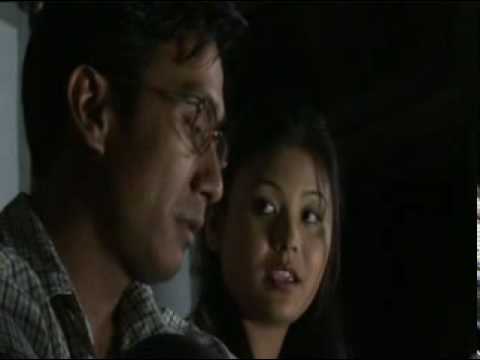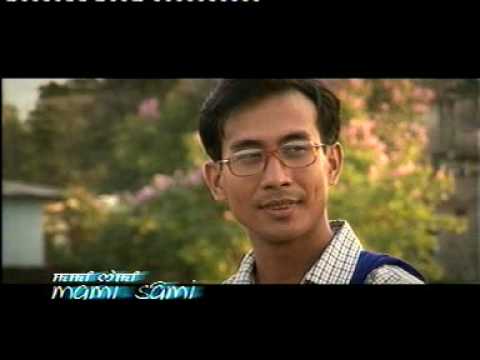Review by Micheal Atom
Tayal was preparing for her matriculation exam and a new teacher, Wangthoi also came to her village. Tayal often got scolded by Wangthoi for her misbehavior. But Wangthoi often checked on her progress in studies. Soon Tayal developed feelings for Wangthoi but Wangthoi tried not to cross the line between a student and a teacher and sometime later Wangthoi left the village. Tayal’s mother pressured her to get married. Wangthoi tried to convince Tayal’s mother otherwise but failed.
One day Wangthoi found Tayal in a Psychiatric Hospital and learned that she got married and lost her husband during an encounter involving revolutionaries of the state. Wangthoi brought her home and treated her well. He even called off his wedding and married Tayal. Later, Tayal during her visit to her village found her husband alive and as a revolutionary leader.

Directed by Ningthouja Lancha, Mami Sami (2008) is one of the most popular films of Manipur reflecting and showing the state’s socio-economic and political history. History of Manipur is being retold through the subjective experience of a few families in Moirang, a town in Manipur. The struggling students in the underdeveloped school along with a burden of poverty is shown clearly. An unsettling, changing lifestyle is seen through the characters in the film showing the unsettling nature of the Manipuri society during those days where people were greatly troubled by insurgencies. People are trapped between the conflicts of state forces and rebel forces and often neglected as if the common innocent people are almost invisible as the name of the movie “Mami Sami” (meaning: hazy view) also points to.
Natural scenic views of Loktak lake, different cultural practices like Likkon Sanaba, Khongjom Parva are captured in the movie. The mental pressure over the people due to the unstable political situation of the state is immense and even capable of driving people mad as seen in Tayal. The unsatisfied thirst to find something to blame for all of these is very questionable. People are made to rethink their existence in society because of the harsh situations they counter. Many innocent lives are lost in those decades but the question on how worth the losses were and when will it be recognised is still an unsolved question posed by the movie itself.

